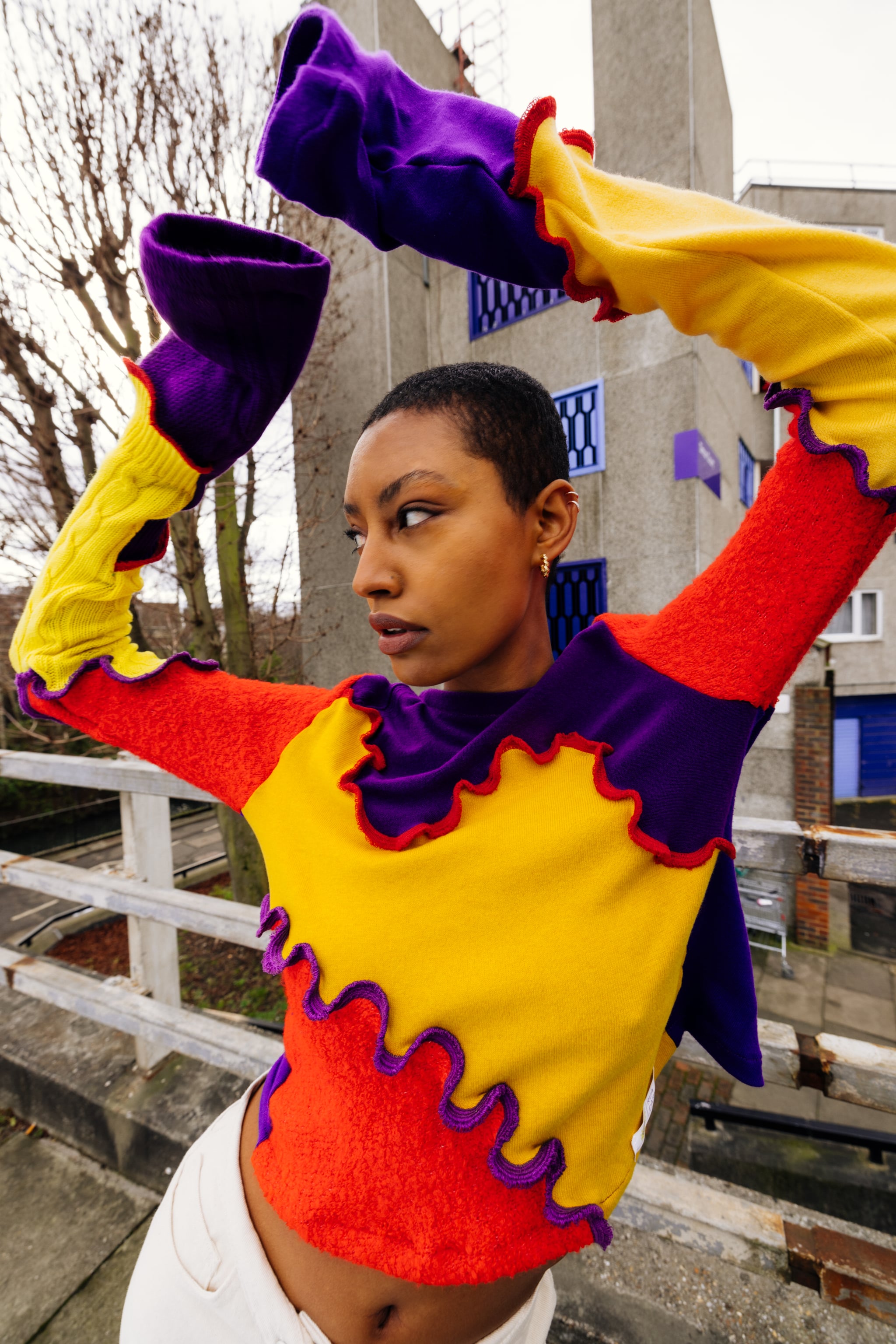
Rua Carlota is at the centre of the conscious fashion revolution. The London-based brand sources clothes that are destined for landfill and transforms them into colourful patchwork knitwear that sells out in minutes. Each piece is handmade by founder Charlotte Rose Kirkham who was previously selling secondhand clothes, until she asked herself: “What is happening to all of the pieces that aren’t interesting and don’t fit this curated aesthetic?” Since going viral on Instagram in 2020, Rua Carlota has been driven to change people’s perspective on waste culture.
The brand’s spring project with Cadbury Creme Egg is a milestone for the designer who tells POPSUGAR that it inspired her to come out of her comfort zone, and approach her design process with a fresh perspective. “I think one of the main things I’ve found is that I’ve sort of got set in my ways, having done quite a similar thing for two years. And I just felt as though the collaboration would take both brands out of our comfort zone. I think that’s a space where really fun, magical things happen,” Kirkham says.
“When I say I’m trying to challenge waste culture, I’m trying to challenge the perception of these pieces that are destined for landfill.”
As part of the How Do You Not Eat Yours campaign, Rua Carlota created a balaclava that covers the mouth, a fine-knit jumper with sleeves that cover the hands, and a pair of gloves that restrict finger movement. Each piece is designed in the chocolate’s iconic purple-yellow-red colourway, with the restrictive details meant to prevent the wearer from eating a Creme Egg. The campaign’s theme encourages a few lucky winners to resist eating one of the limited half milk-and-half white chocolate Cadbury Creme Eggs that can be exchanged for £10,000.
“A huge thing for me was that I didn’t want the garments to be gimmicky, one-time things. I wanted them to be something that would sit in your wardrobe so that you could wear them multiple times rather than them just being a part of this project. I think the main challenge for me was getting across this sort of quirky, restrictive brief, while also making the garments wearable and lifelong pieces.”
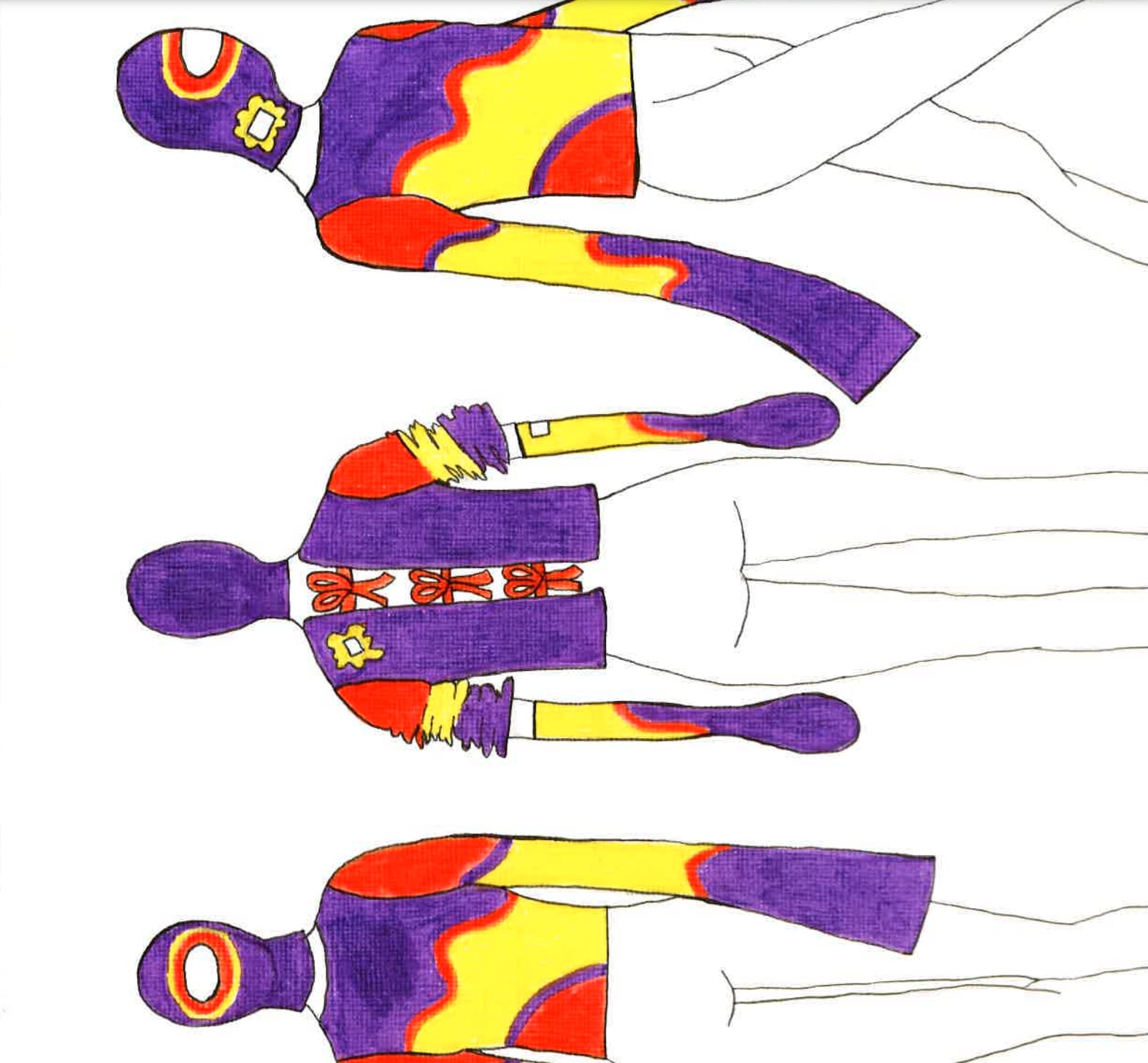
Sustainability completely underpins Kirkham’s design process — from how she perceives a limited-edition collection to the only thing getting wasted in production being the tiny bits of fluff at the ends of the fabric. “When you overlock, these tiny, tiny, tiny bits of fluff come off the edge. My main challenge is figuring out what I can do with it,” she tells us. For Rua Carlota’s collection with Cadbury, it’s the first time the designer has been challenged to create a cohesive collection. While exciting, Kirkham admits that a fluid approach comes more naturally to her. “I have boxes and boxes of geometric shapes [of fabric] that I sew into colour schemes. If I’m making a top, I put my hand in the box, pull out a load of colours, arrange them. And I’m like, OK, that looks quite cool together. Then, pick a thread colour and just go from there.”
“I don’t mean to relieve the fashion industry of the responsibility, but I do think a lot of the change will start from actually re-educating, especially young people, on what it means to consume clothing.”
“I try to use pieces that are literally destined for landfill,” she says. “I guess when I say I’m trying to challenge waste culture, I’m trying to challenge the perception of these pieces that are destined for landfill. Because what I do is make them into an end product that is really, really desirable and just completely changes people’s viewpoint on these pieces. If you saw a ‘before’ of my materials, you would never imagine that they would then become what I produced. I think that is the thing that drives me forward, because I’m paying a lot of attention to the pieces that just don’t get any.”
Chatting to Kirkham, you easily get inspired by her fluid approach to design and her calm confidence, but even she has difficulties finding the balance between work and life. “It’s an ongoing thing, actually learning to separate myself from my business,” she explains. “I think when you grow something from absolutely nothing, you spend probably 80 percent of your time doing it. It’s very difficult at the end of the day to say like, I’m going to be Charlotte now, rather than the designer Charlotte.”
If she could give advice to the Charlotte that launched Rua Carlota two years ago in the midst of the pandemic, it would be to “trust the process, ease yourself into it. And also don’t rush, because I know when the brand took off, I set out these sustainable principles in the beginning and I was so, so focused on keeping to them and I have. But there were lots of other brands that kind of started in a similar way to me and then realised how difficult it was to remain as sustainable as they were. So then [those brands] moved on to slightly less sustainable practices. And I know a lot of people around me were like ‘you’ve got this demand for these products. Why are you not producing to that demand?’ And it was always really important to me to stay small and grow with my capacity.”

Since taking off in 2020, Rua Carlota has finally reached a stage where the brand’s team and product offering is ready for expansion. Currently, Kirkham is the head cook and bottle washer at Rua Carlota. With an incredible GCSE textile teacher to thank for her skills, the founder and self-taught designer does all the sewing, production, marketing, sourcing, packaging, and emails. “I think people go on the Instagram and they see all the press and they’re like, oh wow, this is quite a big business. But it’s actually just me.” Once she finds the right people who understand what it takes to run a completely sustainable business, she’s excited to explore avenues other than knitwear. “I’d begun looking at, I called it ‘an exploration of corporate wear’. Looking at ties and blazers and things. So I think I want to sort of go into that further and maybe homeware. Push a little bit,” she teases.
“Instagram has a lot to answer for, with nobody wanting to repeat outfits. I wear the same 10 things over and over again, and I think making people realise that’s okay is a massive thing.”
Rua Carlota is a true pioneer within the conscious fashion movement, by showing that it is possible to launch a completely sustainable (and profitable) business from the comfort of your bedroom. The fashion industry could learn a few things from Kirkham, but she thinks that the true culprit for the industry’s negligence is an overflow of big egos. “As long as there is a demand for constant newness and this sort of human desire to always be lovely and always be wearing the latest things. And I don’t mean to relieve the fashion industry of the responsibility, but I do think a lot of the change will start from actually re-educating, especially young people, on what it means to consume clothing,” she explains. “Even I’ve had to have this conversation with myself a lot of times because I am guilty, three or four years ago, of doing a massive Zara haul and thinking that was absolutely fine. I just think with personal consumption, what you feel you need to be relevant. So much of it comes down to the human ego and how we perceive our worth in a lot of ways.”
“I think more needs to be done to actually hold fashion brands accountable,” she adds. “Because at the moment a brand will attach itself to sustainability as a means to making more profit, as opposed to believing in the ethics of what they’re doing because nobody is actually holding them responsible. And I think Instagram has a lot to answer for, with nobody wanting to repeat outfits, for example. That’s a huge thing I’m passionate about. I wear the same 10 things over and over again, and I think making people realise that’s okay is a massive thing.”
Rua Carlota’s limited edition Cadbury Creme Egg range will be available free of cost at Rua Carlota’s online shop from 9am on Wednesday, 9 March.
Image Source: Courtesy of Joshua Meeks-Rayvon
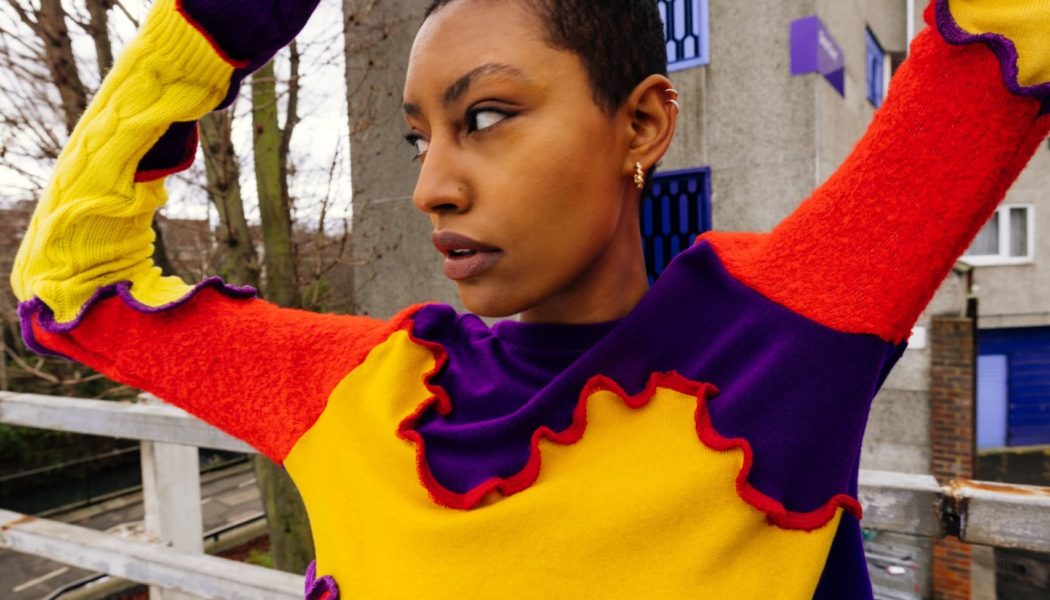

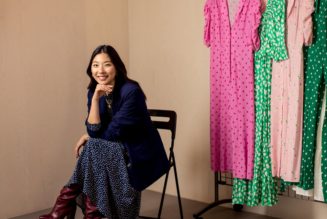

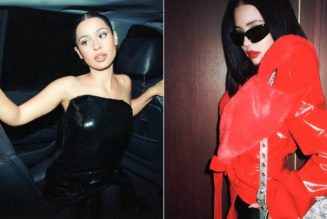
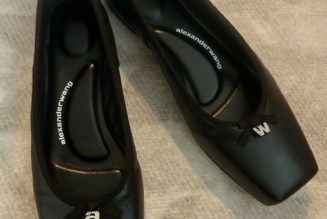
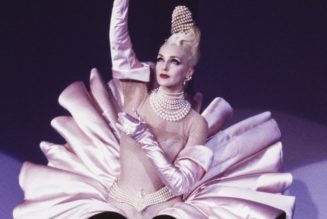
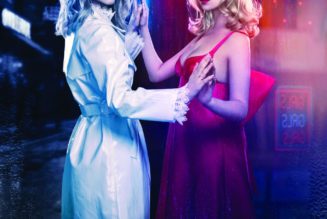


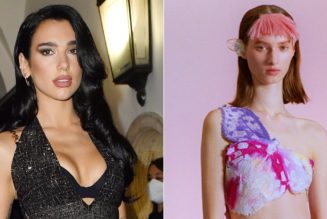
Tagged: Designer Collaborations, Fashion Brands, Fashion Designers, Popsugar Interviews